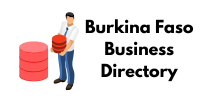Before you start building a new website in 2024, you need to decide what platform you want to build it on. Choosing the Right Platform The platform will determine what overseas data tools and connections you have available and how easy it is to update your site.
When evaluating website platforms, consider the following:
- Characteristics
- Ease of use
- Available templates (although it’s best to work with a developer to create a custom template to ensure page speed, usability, and SEO results)
- Customer support
- Pricing
Review these factors that may influence your decision on choosing the best website platform for your business.
Key Considerations When Choosing a Website Platform
When it comes to website platforms, there is no one-size-fits-all solution. Every business has unique needs and serves a specific create a mobile-friendly website audience. By following these steps, you can ensure that your website platform decision is future-proofed so that it grows with your business and serves your customers effectively.
1. Website Usage Analysis
Describe everything you need your website for. It is needed to showcase your products or services. But evaluate whether you need it for other purposes as well.
- Lead Capture
- Customer education
- Customer service
- Selling products/services
- Blogging
- Online chat
- Marketing automation
Existing digital tools you want to integrate
Depending on how you will use your site, different types of sites will work best for you. Understanding your unique needs is the first step to choosing the right platform.
2. Technical resources
Assess your team’s technical skills. How tech-savvy are they and how capable are they of managing a more complex, technologically advanced website? If you have a team with little technical knowledge, it may be best to look for a simple plug-and-play option or hire a team of tech experts to help you with your site.
Launching a website is just one small aspect of maintaining your online presence. While you’ll need some technical knowledge to get started, you’ll also want to have resources in place in case you run into security issues or need to add new technologies to your site.
Using your website to its full potential will help you get the most out of your investment, which means having the right technology to achieve your goals given the resources you have.
3. Budget
Depending on what stage mobile list your business is in, the budget may vary. For example, small businesses that aren’t yet making money may not invest much in their initial website. It may simply be a task to make something usable to start taking orders or to raise awareness of what you have to offer.
If your budget is very limited, you are probably not ready to work with a developer to create a customized site and experience for your customers. Look for affordable hosting and management from a trusted partner.
Just know that as your business grows, you will need to adapt and expand your online presence. This means you will need a professional website design that matches your branding, integration with marketing automation tools to ensure better lead capture and engagement, and updated security to protect your business and your customers.

